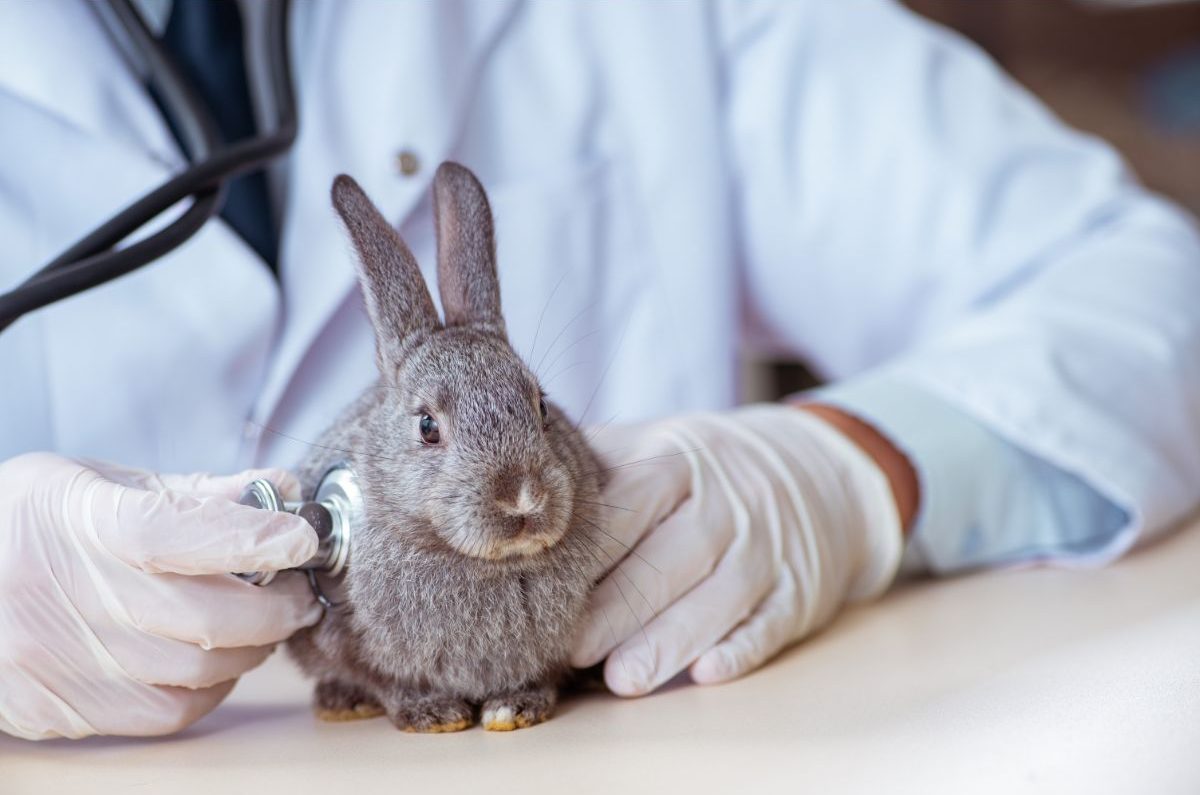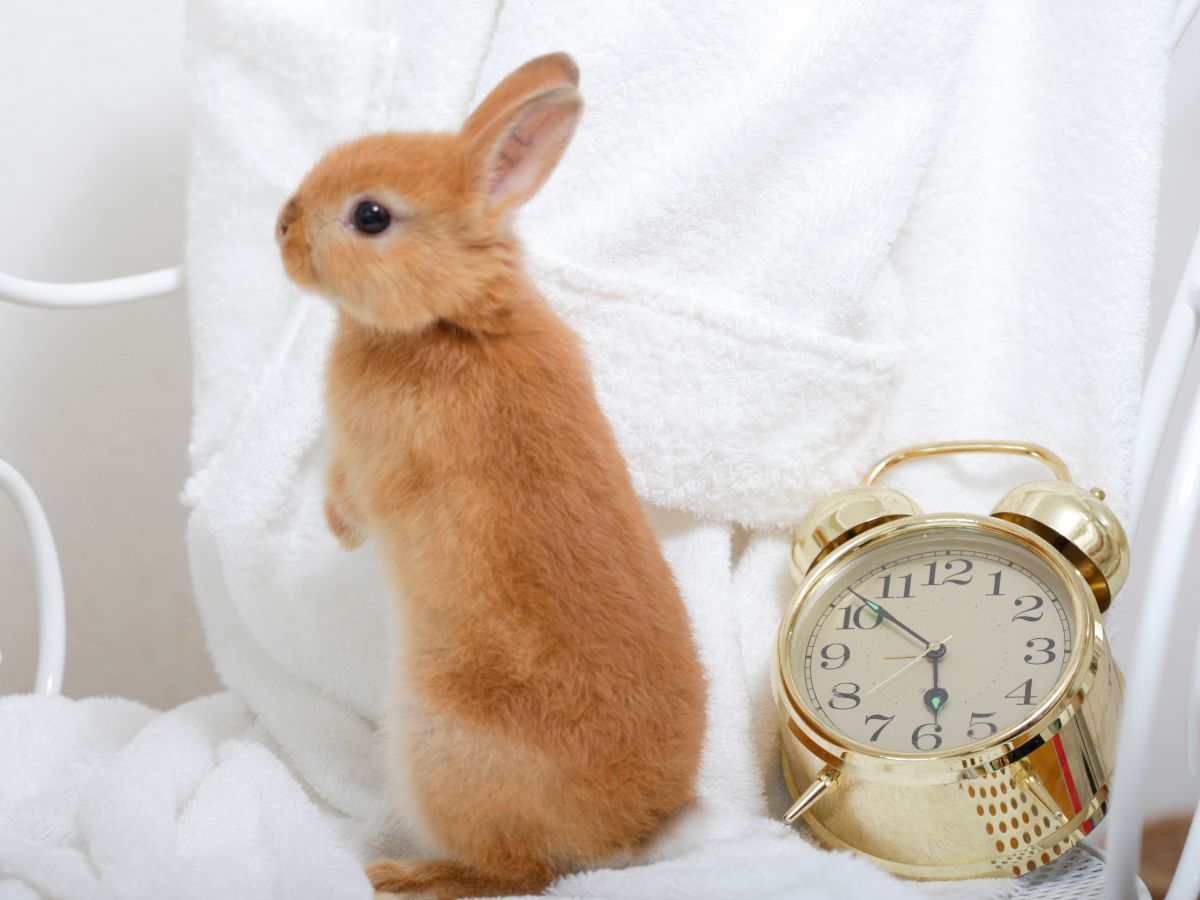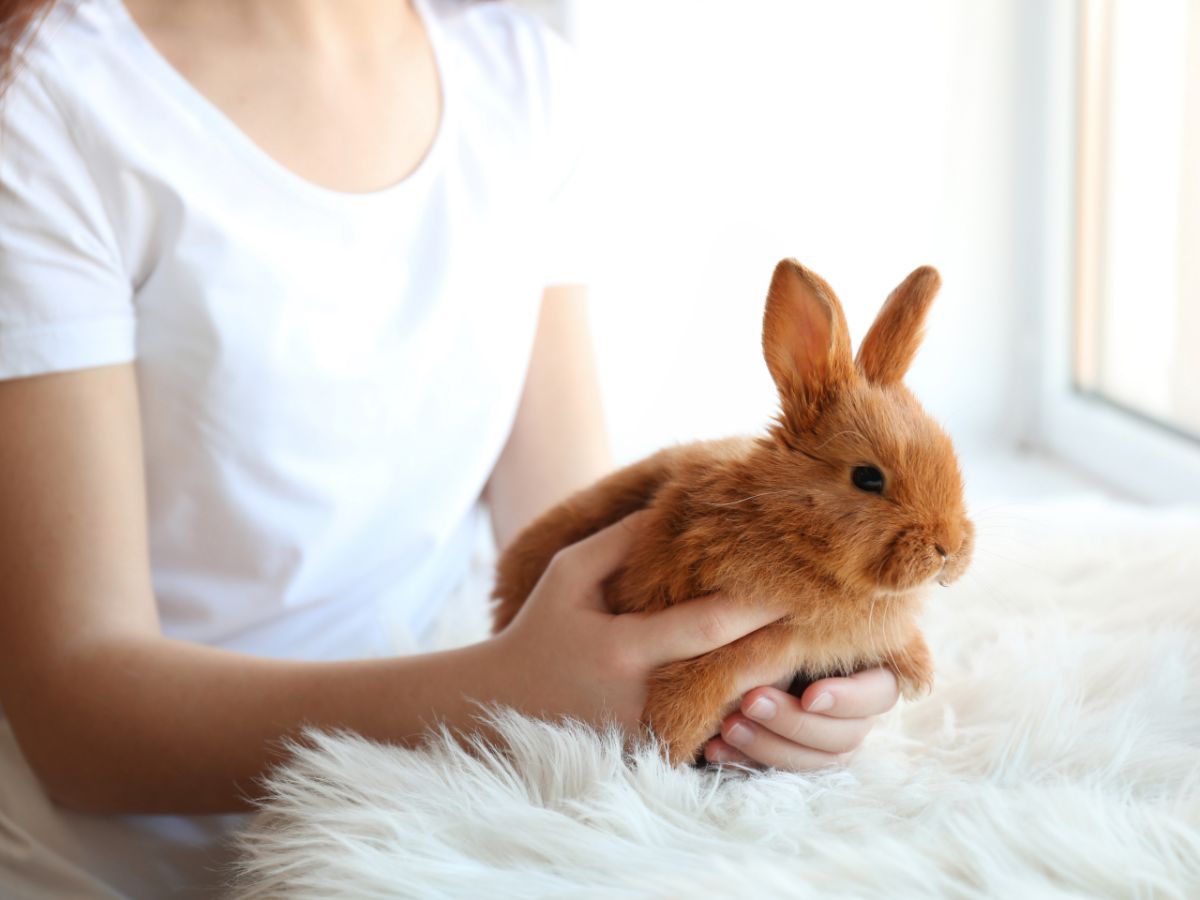Having pet rabbits can be very rewarding, but rabbits can become sick like all pets. We don’t like to see a pet in pain or distress, so it’s vital to know more about our pets. A friend’s rabbit got sick not too long ago, and she had no idea until she took her rabbit for its regular check-up. It was worrying as I also have rabbits, which led me to wonder how to recognize the most common rabbit diseases.
Common rabbit diseases include Dental disease with symptoms like loss of appetite, excessive drooling, weight loss, and pawing at their jaw, and Ringworm with symptoms like hair loss, skin lesions, and scratching. Another disease is Myxomatosis with symptoms like discharge from the nose.
I had no idea about the diseases rabbits could get or how to recognize them, so I contacted a vet in our area. The vet gave me great advice and told me to do additional research on common rabbit diseases. What I found was interesting, and I thought I would share this with all the other rabbit owners who want to know how to tell if their rabbit is sick.
Contents
How To Recognize The Most Common Rabbit Diseases
We all love and adore our rabbits, so getting to know more about them is natural and important for their health and happiness. Below we will discuss a few common rabbit diseases and how to recognize if your rabbit has them.
Dental Diseases In Rabbits
Not too long ago, rabbits were considered rodents as they share many of the same characteristics but have since been classified as mammals. It is important as one of the main reasons they were lumped in with rodents was their long and strong front teeth.
Like rodents, one of the issues facing rabbits is dental disease. There are many different dental diseases, but we will look at the four most common ones in more detail. We will take a closer look at;
- Overgrown teeth,
- Abscesses,
- Dental caries.
Overgrown Teeth
Overgrown teeth are very common in rabbits, and you must keep a close eye on the state of your rabbit’s teeth. Your rabbit will have a distinct overbite, but its teeth will be skewed and curling inwards.
Abscesses
A rabbit usually gets abscesses if they have something sharp poke into their gums, such as overgrown teeth or chewing on something sharp and hard like wood. The wound will stay open until the underlying issue is addressed, like removing the offending object if it’s stuck or taking your rabbit to the vet to help with the overgrown teeth.
Dental Caries
Dental caries is when a bacterial infection causes your rabbit’s teeth to demineralize (erode the enamel), leading to tooth decay. If you don’t treat it, it can cause a root infection that will cause holes in the surface of the tooth and, in severe cases, the affected tooth to fall out.
Symptoms Of Dental Disease In Rabbits
If you think your rabbit has a dental issue; keep a look out for the following symptoms;
- Loss of appetite: Rabbits will stop wanting to eat if they have overgrown teeth as it would be too painful for them to bite and chew.
- Teeth that are too long curling inward: A rabbit’s teeth have open roots; this means their teeth keep on growing throughout their lives, so they can easily grow too long.
- Excessive drooling: If you see your rabbit drooling a lot and it’s on their chin close to their lips, then you should look at their teeth as they can’t stop the drool with their teeth in the way.
- Small brown spots on teeth: Your rabbit will have little brown spots where the enamel is eroding.
- Depression: As they cannot eat, they will start to feel sick and become depressed and listless.
- Overgrooming or under-grooming: they will constantly groom themselves or lose the will to groom themselves. They might be in too much pain.
- Weight loss: They will lose weight as they are in too much pain to eat or have lost their appetite and will eat much less. They may also be selective in their food choices where they weren’t before.

Skin Diseases In Rabbits
One of the most common health conditions rabbits face is skin problems. Some of the most common ones we will look at are:
- Ringworm,
- Fleas, lice, and mites.
Ringworm
Ringworm is a bacterial infection that spreads through contact with infected animals or material such as bedding, fecal matter, or infected toys, brushes, and fur. Ringworm can also spread to humans, so it’s important to wear gloves if you suspect your rabbit has Ringworm.
They will constantly scratch, and Ringworm often presents as lesions on your rabbit’s nose or body. It might look like a mite infestation but will have a ring pattern.
Fleas, Ear, And Fur Mites
Fleas and mites are common skin issues with most pets and can be mild or serious. Fleas are often seen jumping or running on the skin and in the rabbit’s fur. Mites can be found on the body or in the ear. Mites are a bigger concern as they burrow into the skin and cause ulcers and bleeding skin. These can be diagnosed with a visit to the vet, but there are other symptoms to look for.
Symptoms Of Skin Diseases In Rabbits
Some of the most common symptoms to look for if you suspect your rabbit might have a skin disease include:
- Scratching: Mites, fleas, and Ringworms all leave your rabbit itching as they bite and burrow into the rabbit’s skin. The skin will become dry and itchy.
- Fur falling out: Your rabbit’s fur might fall out if they have a severe mite or Ringworm infestation.
- Skin lesions: Most often, you will notice skin lesions on your rabbit; either on the nose and around the mouth, the crevices of the body like the tail and under the paws, or in the ears.
Other Common Diseases In Rabbits
Other common diseases in rabbits that have more specific symptoms include:
Myxomatosis
Myxomatosis is a viral disease that is almost 99% fatal in rabbits. It is a poxvirus and can be transmitted to rabbits by infected insects, bedding, or other animals with the disease.
There is no effective treatment for Myxomatiosis, and euthanasia is often the most humane choice to keep a rabbit from dying a slow and very painful death. Symptoms are usually seen within 14 days of exposure, and the symptoms include:
- Fever over 103°F,
- Droopy ears,
- Discharge from the nose and eyes,
- Purple spots on the skin,
- Swollen eyelids, ears, nose, face, lips, etc.
- Seizures
Diarrhea In Rabbits
Diarrhea can be caused by infections, bacteria, incorrect diet, stress, parasites, and antibiotics. You will only know how serious the issue is when you find the underlying cause of the upset tummy.
Try limiting the number of leafy greens you give for a day, and if the runny stool persists for more than 24 hours, you need to get to the vet for a parasite screening and bacterial check immediately. It can be fatal in young rabbits if you leave it untreated after 24 hours. Symptoms include:
- Runny tummy,
- Dehydration,
- Lethargy,
- Lack of appetite.
Conclusion
It’s important to know the most common diseases and their symptoms to keep your rabbit healthy and happy. If you suspect your rabbit is ill or see the signs mentioned above, getting your rabbit to the vet immediately; it’s vital for diagnosis and treatment.




